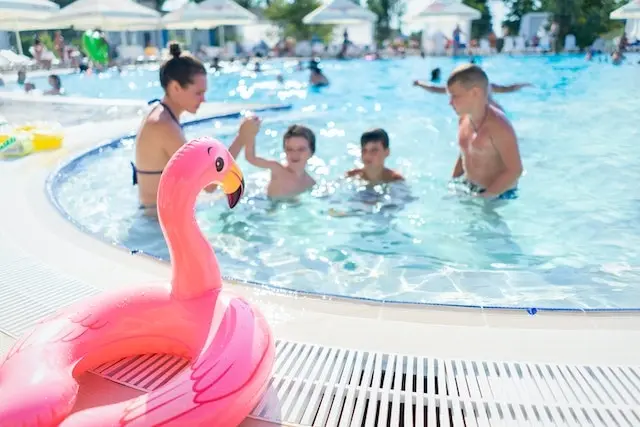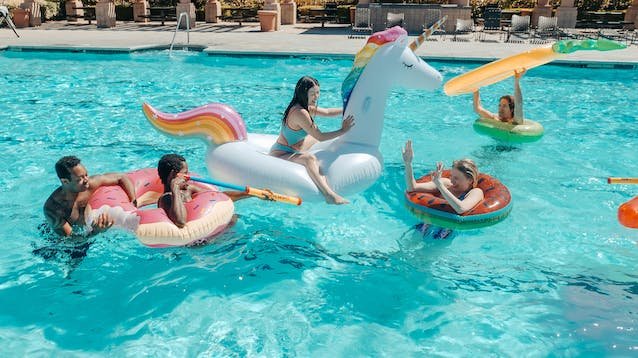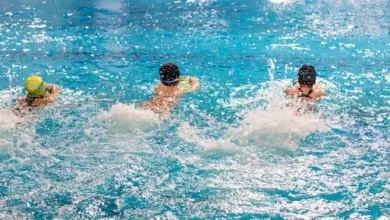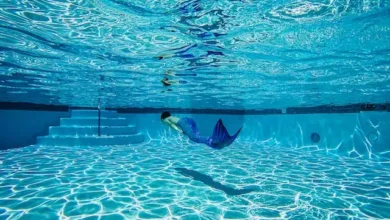Adult Swimming: Factors to Consider When Selecting a Safe Adult Swimming Class
Embarking on the journey of adult swimming classes is an exciting venture that comes with its considerations. Whether you’re a novice swimmer or looking to refine your skills, choosing the right swimming class is crucial. In this comprehensive guide, we’ll explore key factors to consider when making this decision, ensuring you dive into the world of swimming with confidence.
In this article,
How Do I Assess My Current Swimming Skill Level?
- Self-Assessment: Begin by evaluating your comfort level in water, your swim strokes, and your ability to tread water. This self-assessment provides a baseline to determine your current skill level.
- Professional Assessment: If uncertain, consider seeking a professional assessment from a certified swim instructor. They can provide valuable insights into your strengths and areas that need improvement.
Understanding your current swimming abilities is foundational to selecting an appropriate class that caters to your needs and goals.
What Are the Different Types of Adult Swimming Classes Available?

- Beginner Classes: Tailored for those new to swimming, covering basic skills like floating, kicking, and introductory strokes.
- Intermediate Classes: Geared towards individuals with foundational skills, focusing on stroke refinement, endurance, and diving techniques.
- Advanced Classes: Designed for proficient swimmers, concentrating on advanced strokes, competitive techniques, and endurance training.
Recognizing the different class levels helps you choose one that aligns with your current abilities and aspirations, ensuring effective skill development.
Is it better to choose group or private adult swimming classes?
- Group Classes: Offer a social aspect, fostering a sense of community. They are ideal for those who enjoy group dynamics and want a more economical option.
- Private Classes: Provide personalized attention, catering to specific needs and goals. It is recommended for individuals seeking a customized learning experience.
Deciding between group and private classes depends on your learning preferences, whether you thrive in a social setting or prefer individualized attention.
How Can I Find Certified and Experienced Swimming Instructors?

- Check Accreditation: Ensure instructors are certified by reputable organizations like the American Red Cross or the United States Swim School Association.
- Read Reviews: Look for reviews and testimonials from previous students to gauge the instructor’s effectiveness and teaching style.
Verifying instructor credentials and reading reviews ensure you receive quality instruction from experienced professionals.
What Role Does Class Schedule Play in My Decision?
- Flexible Scheduling: Opt for classes with flexible schedules that align with your daily routine, making it easier to commit to regular attendance.
- Consistent Attendance: Regular attendance is crucial for skill development. Choose a class schedule that allows you to attend consistently.
A suitable class schedule ensures you can commit to regular attendance, a key factor in progressing your swimming skills.
How Can I Overcome Fear or Anxiety Associated with Swimming?

- Communicate with Instructors: Inform your instructor about any fears or anxieties you may have. They can tailor lessons to accommodate your comfort level and pace.
- Gradual Exposure: Gradually expose yourself to the water, starting with shallow areas and progressively moving to deeper sections.
Open communication with instructors and a gradual approach helps overcome fear and anxiety, creating a positive and comfortable learning environment.
What Equipment Do I Need for Adult Swim Classes?
- Swimsuit and Goggles: Invest in a comfortable swimsuit and quality goggles for clear underwater vision.
- Swim Cap: If you have long hair, a swim cap can help keep your hair secure and prevent distractions during lessons.
- Swim Fins and Kickboard: Depending on the class type, your instructor may recommend swim fins or a kickboard for specific exercises.
Having the right swim equipment ensures a comfortable and effective learning experience, supporting your progress in class.
How Do I Set Realistic Goals for My Adult Swim Classes?

- Short-Term Goals: Start with achievable, short-term goals such as improving a specific stroke or increasing your lap count.
- Long-Term Goals: Establish long-term goals like participating in a swim event or achieving advanced certifications to stay motivated and focused.
Setting realistic and measurable goals provides direction and motivation, enhancing your overall learning experience.
How Can I Ensure Safety During Adult Swim Classes?
- Follow Pool Rules: Adhere to pool rules and guidelines for a safe swim environment.
- Stay Hydrated: Maintain proper hydration before, during, and after classes to support overall well-being.
Prioritizing safety measures ensures a secure learning environment, promoting a positive and enjoyable experience in the water.
How Do I Incorporate Swimming Into My Overall Fitness Routine?
- Cross-Training: Integrate swimming with other fitness activities for a well-rounded exercise routine.
- Consistency is Key: Consistent practice is essential for progress. Aim for regular swim sessions to enhance overall fitness.
Integrating swim into your fitness routine adds variety and supports overall health, promoting a holistic approach to well-being.
Conclusion
Selecting the right adult swim class involves a thoughtful consideration of your current skills, preferences, and goals. By addressing these questions, you can embark on a swim journey that not only enhances your skills but also brings joy and a sense of accomplishment. Dive in, make a splash, and enjoy the myriad benefits of adult swim classes!

How Do I Determine the Right Skill Level for Adult Swimming Classes?
a. Self-assessment: Begin by honestly assessing your comfort and proficiency in the water. Gauge your ability to float, tread water, and execute basic swimming strokes.
b. Instructor Evaluation: If uncertain, seek an evaluation from a certified swimming instructor. They can provide valuable insights into your strengths and areas for improvement.
Are private adult swimming classes worth the investment, and how do they differ from group classes?
a. Private Classes Overview: Private classes offer personalized attention with one-on-one instruction. Instructors tailor lessons to individual needs and goals.
b. Group Classes Overview: Group classes provide a social environment, fostering a sense of community. They are typically more cost-effective and offer shared learning experiences.





